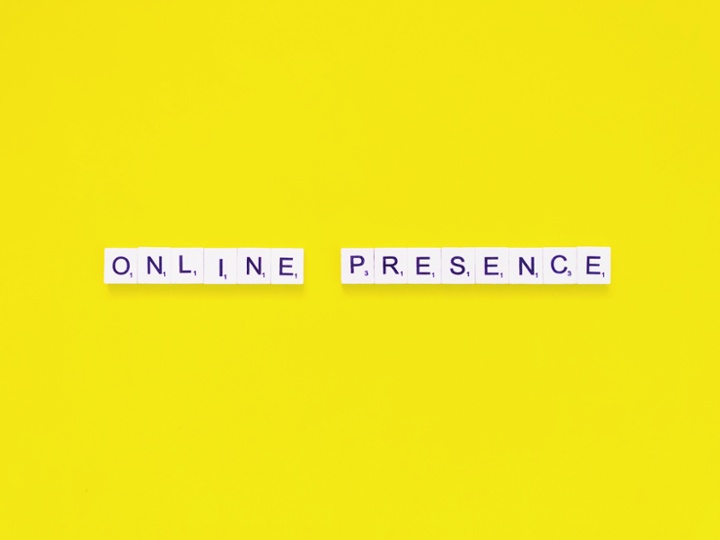When it comes to getting a remote developer job, it’s not just about having the right skills. Your online presence is also crucial. This article will discuss what an online presence is and how it can help you land your dream remote developer job. We'll also show you how to build your brand so employers can find you!
Online presence definition
As a developer, your online presence is a key aspect of your professional identity. It's the digital fingerprint you leave behind and the total of your entire online activity. Think of it as your online reputation, essential for finding new opportunities and building your career.
Your online presence comprises many elements, including your name and face, which may appear on professional social media websites and accounts like LinkedIn or your blog or website. This is often the first impression that potential clients or employers will have of you, so it's crucial to present yourself in a professional and approachable manner.
Social media accounts like Twitter, Facebook, and Instagram can also be part of your online presence. These platforms allow you to share your work, ideas, and personality. Potential clients can better understand who you are as a person and what you're capable of by looking at the content you create and share online. Potential employers will often look up candidates on social media before hiring them, so keep that in mind when determining what to post and whether or not you keep your profiles private. Being visible on multiple online channels is critical to appearing in search results so more potential customers can find you and see you as a top candidate for their remote developer position.
Even beyond what you post personally, the people you follow and the content you interact with are all part of your digital footprint. Following thought leaders on LinkedIn can show you like to stay informed and on top of the latest industry trends. Keeping your certification, awards, and skills updated on LinkedIn makes it easier for companies to understand your experience and showcases your technical knowledge. Even retweeting industry stories can show that you engage with the latest news outside of work.
Not only do these things present well to potential clients, but paying attention to what’s happening in the tech world can help you grow as a developer and better prepare you for future jobs. If you work from home, staying updated on the news is important since you won’t be talking about it as much with co-workers.
Your online presence also includes reviews or feedback others posted about your work. Think of yourself as an online business. Positive reviews from users can be a great asset, while negative reviews can be a warning sign for potential clients. It's essential to monitor your online reviews in online directories and constructively respond to any negative feedback.
Your network of connections is another essential element of your online presence. Your connections may include people you know in person and online contacts you've made through social media or other online communities. These connections can be valuable for finding new and legitimate business opportunities or expanding your professional network.
Don't forget about the content on your website; use this to showcase any projects, apps, websites, or software you’ve helped develop. This will become an essential component of your online presence. This content can showcase your expertise and demonstrate your knowledge and skills to your target customers, potential clients, or employers. A well-curated online presence can make you easier to find in search engine results, like google search, and make you more discoverable for current and potential customers.
How to grow your online presence
As a remote developer, your online presence is your calling card. It's a way for potential employers to get to know you and your skills before ever meeting you in person. There are several steps you can take to build a solid online presence that will help you land remote development jobs.
First, consider creating a personal website. This website should showcase your skills, work experience, and completed projects. It should also have a blog section where you can write articles and tutorials about topics related to development. This will help establish you as an expert in your field and show potential customers and employers that you are knowledgeable and passionate about your work.
If you have experience as a full stack or front-end web developer, showcase your skills here by creating a stunning personal website. This will become another example of your work, but also help present your personal information more engagingly and professionally. Consider working with a designer or copywriter to help with your website.
Another way to build your online presence is to contribute to open-source projects. This is a great way to show off your skills and gain experience working with others in a collaborative environment. It demonstrates your commitment to the community and willingness to help others.
Keep a portfolio of all the work and projects you complete or contribute to show future employers and demonstrate your skills and experience.
Attending meetups and conferences is another step in building your online presence. This is an excellent opportunity to network with other developers. You can even join online developer communities on sites like Reddit or GitHub.
Build brand awareness with your social media presence
In addition to a personal website, you should also create accounts on platforms like Twitter and LinkedIn. Use these accounts to share your work, connect with other developers, and participate in online discussions related to your field. Make sure your profiles are up-to-date and include relevant keywords so potential employers can find you on search more efficiently.
For remote developers looking to find opportunities, building a solid presence on social media sites and being active online can be a game-changer. Social media has become an integral part of the hiring process, and it provides an excellent platform to showcase your skills, experience, and professional accomplishments to a broader target audience.
Having a social media presence allows you to connect with local businesses, potential employers, and other professionals in your field. This can be particularly useful for remote developers needing access to local networking opportunities. By connecting with other professionals on social media, you can gain insights into industry trends and learn about new job opportunities that may only advertise in some places.
Furthermore, social media platforms provide an excellent opportunity for remote developers to showcase their work and expertise. You can use social media and other sites to share your coding projects, articles or blog posts, and relevant content demonstrating your knowledge and experience. Doing so can help you establish yourself as a thought leader in your field and attract the attention of potential employers and businesses looking for talented developers.
Social media and internet presence can help remote developers build a personal brand. By consistently sharing relevant and insightful content on social media, you can create a positive impression of yourself in the minds of potential employers. Your brand can help you stand out from other job candidates and increase your chances of landing your dream job.
Finally, building a social media presence can help remote developers establish and maintain professional relationships. Social media provides a platform for remote developers to connect with other professionals, including colleagues, mentors, and industry influencers. Building these relationships can help you stay up-to-date with industry trends, learn new skills, and find new job opportunities.
Why does it matter for developers?
In today's digital age, an online presence has become more critical than ever, especially if you're a remote developer. Why, you ask? Well, for starters, it's a great way to showcase your skills and experience in a way that will attract potential employers.
Think about it: when you apply for a remote developer job, your resume and cover letter may only give a glimpse of your capabilities. But if you have a website or portfolio, you can showcase your work in a visually appealing and interactive way. And who doesn't love a little interactivity?
Plus, having an online presence shows that you're tech-savvy and up-to-date with the latest business information, trends, and tools. Employers want to see that you're not just a one-trick pony but constantly learning and growing in your field. It also demonstrates that you have a level of professionalism and dedication to your craft.
You can start by creating a website or portfolio that showcases your best work. This could include projects you've completed, code you've written, and any other relevant experience. Think of it as a more dynamic and interactive resume; just make sure it's visually appealing and easy to navigate.
Once your website or portfolio is up and running, it's time to promote it across social media platforms like Twitter, LinkedIn, and Facebook. This will help increase your visibility and reach a wider audience. And who knows a potential employer may stumble across your site or profile and be blown away by your skills!
Who is a job seeker?
Job seekers are individuals who are actively seeking new employment opportunities. They typically possess some experience in their field and are looking for openings that match their skills and expertise within their preferred industry. They may also seek roles with similar responsibilities and compensation to their current position while exploring opportunities to advance their career within a prospective company or moving on to their "dream job."
Developers, especially those with the flexibility or working from home, may start looking for new roles when they become bored with their current job description or are offered more money elsewhere.
Many people could be considered "job seekers" while still employed by their current employer--and that's okay! If you haven't found your dream remote developer position yet but want something better than what you currently have, then yes, you’re a job seeker!
How to get a remote developer job
Working from home has never been more popular, and it's not just about getting to work in your PJs. You save time and money on commuting too. As a software developer, the idea of remote work can be exciting. Not only does it offer a sense of freedom, but it also allows you to work with companies from all over the world. Yes, it can pay well too! However, competition can be challenging with the increasing demand for remote developers. So, how can you stand out from the crowd and secure that remote job?
Here are some tips on how to find a remote development position that fits your skills and experience.
First, ensure you have a strong portfolio showcasing your skills and experience. Your portfolio should include your best work and any awards or recognitions you've received. Include details such as the technologies you used, the challenges you faced, and the solutions you implemented. This will help you stand out from the crowd and demonstrate to potential employers that you have what it takes to get the job done.
In addition to your portfolio, make sure to highlight any open-source contributions that you've made. This is a great way to demonstrate your technical knowledge and show that you're passionate about your work. This demonstrates your technical knowledge, ability to collaborate with others, and commitment to the development community.
Now that you have your portfolio and open source contributions in order, it's time to use the services and support of Talentcrowd to create an online profile where employers can find you. Talentcrowd is a platform that connects developers with companies that need their skills and experience. By creating a profile on Talentcrowd, you can showcase your portfolio, list your skills and experience, and make it easy for employers to find you.
How to find a remote developer
If you run a business online, a remote software developer might be a great fit. If you're looking to find a remote developer for your organization, looking at a potential candidate's online presence is essential to ensure they'll be a good fit.
Their online presence should validate their skills and experience by giving you a sense of their work history and projects they've worked on. Search them on multiple channels to understand their services and answer your questions. Anything left unanswered can, of course, be cleared up in a technical interview.
When reviewing a developer's online presence, look for examples of their work, their communication style, and ability to work independently. If you see that they've contributed to open-source projects or have created their projects, that's a good sign that they're passionate about what they do and have a strong work ethic.
Another important factor when hiring a remote developer is their cultural fit with your organization. Remote work can be isolating, so finding developers comfortable working independently and communicating effectively with your team is crucial. Look for a developer with experience working remotely or a proven track record of successfully managing their workload.
Of course, finding the right remote developer can be time-consuming, which is where Talentcrowd comes in. Talentcrowd is a platform that connects experienced developers with companies that need their skills. Our platform makes it easy to find and hire remote developers who perfectly fit your organization. We vet all our developers to ensure they have the skills and experience necessary so you can trust that you're getting the best talent available.
Find your dream job
Anyone that does business online knows that many consumers rely on Google search and other search engine results to make informed decisions. That's why optimizing your online presence for search engines and having an extensive portfolio of work will make it easier to land a tremendous remote developer job. We know it can be daunting at first, but with time and practice, it will become easier. Remember: the goal is not necessarily to have a perfect website or portfolio immediately but to get started and keep improving until you’re ready for prime time!
If you’re looking to find your dream job as a remote developer or hire an expert developer for your next project, Talencrowd is the place for you. We have a growing network of highly skilled developers ready to take on whatever challenge you can throw at them. We operate as a digital talent platform providing employers with pipelines of highly vetted senior-level technology talent and on-demand engineering resources. We're tech agnostic and cost-competitive. Find your next all-star developer at Talentcrowd, or apply to join our network today!



